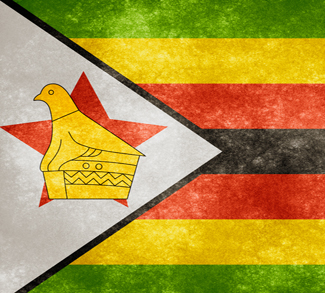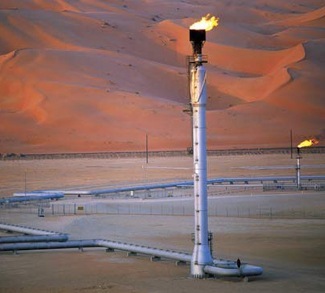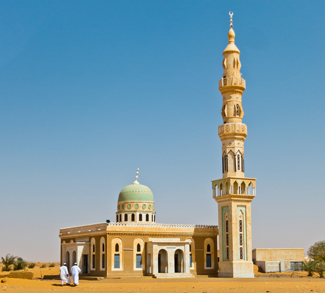The outcome of the Rwanda elections in July 2024 could potentially influence the United Kingdom’s perception of Rwanda as a “safe country” for sending asylum seekers, which may in turn impact UK policies and potentially the political climate, including elections within the UK.
For instance, should some country or countries interfere in Rwanda’s electoral processes or subsequently influence the president and the government regarding the UK-Rwanda agreement on immigration, it could significantly affect the Rwanda Bill, the UK’s foreign and immigration policies, and the forthcoming UK elections.
The 2024 elections in Rwanda are anticipated to be closely controlled. In the 2017 elections, President Paul Kagame secured a win with 99% of the votes, and it is expected that the outcome will be similar in this election cycle. Observers have noted that previous elections were affected by several issues, such as political oppression, biased registration procedures, and claims of fraudulent activities during the voting process.
Since assuming power after the 1994 genocide, which saw around 800,000 Tutsis and moderate Hutus killed, Paul Kagame has led Rwanda. Now 66, Kagame is planning for a fourth term. The 2015 constitutional reform, which controversially circumvented the original two-term limit by allowing two more terms of five years each, could ultimately extend his rule to 40 years. The reform fits into a broader trend across Africa, where leaders are increasingly finding ways to extend their tenure beyond traditional limits. Rwanda’s President Kagame is now positioned to potentially lead for life.
The Rwandan Patriotic Front (RPF) has used various methods, such as intimidation, arrests, and legal measures, to limit the field of presidential candidates. In the upcoming 2024 elections, Frank Habineza of the Democratic Green Party of Rwanda is the only notable opposition candidate. Having secured less than 1% of the vote in the 2017 elections, his party currently has 2 out of 53 seats in the Chamber of Deputies, Rwanda’s lower house.
The UK Supreme Court has already found the UK-Rwanda asylum scheme unlawful, citing Rwanda’s poor human rights record and other concerns, including the potential for the forcible return of refugees or asylum seekers to a country where they are liable to be subjected to persecution and a lack of a fair and independent judiciary. It is important to highlight that international and EU law prohibits the forcible return of refugees or asylum seekers – refoulement. The Safety of Rwanda (Asylum and Immigration) Bill, introduced by the UK Prime Minister Rishi Sunak, mandates that decision-makers treat Rwanda as a safe country, a move that has been met with criticism and legal challenges.
The UN has expressed significant concerns about the UK’s policy, emphasizing that it undermines human rights and is conflicting with international refugee law. Moreover, during legal proceedings, representatives of the UN Refugee Council (UNHCR) have argued that Rwanda should not be considered a safe third country for the transfer of asylum seekers from the UK, pointing out that proceeding with the deal would breach the Refugee Convention.
These developments suggest that the UK’s stance on Rwanda as a safe country for asylum seekers is already a contentious issue and could be further influenced by the outcome of Rwanda’s elections. If the elections lead to significant changes in Rwanda’s governance or international relations, this could impact the UK’s policies and political discourse, especially in relation to asylum and immigration. Given the existing legal and humanitarian concerns, any developments in Rwanda’s political landscape or human rights record could be closely scrutinized by UK policymakers, potentially affecting the debate over the UK-Rwanda asylum deal and influencing public opinion ahead of UK elections.
China’s Interests in Rwanda
Several Chinese companies have made significant investments in Rwanda, spanning various sectors such as infrastructure, mining, technology, and energy. These investments are part of China’s broader engagement with Africa, aimed at enhancing bilateral trade, securing resources, and extending its geopolitical influence. Such companies include Sichuan Road and Bridge Group (SRBG), StarTimes, China Road and Bridge Corporation (CRBC), Shenzhen Energy Group, China Civil Engineering Construction Corporation (CCECC), and Hunan Construction Engineering Group.
Chinese investments in Rwanda are diverse and have significant impacts on the country’s infrastructure, digital transformation, energy sector, and overall economic development. The investments are largely mutually beneficial, with Rwanda gaining improved facilities and services and Chinese companies expanding their global footprint and securing new markets and resources. The relationship between China and Rwanda through these investments reflects China’s strategic approach to its engagement with African nations, focusing on long-term partnerships and infrastructure development.
Russia’s Interests in Rwanda
The precise details of Russian company investments in Rwanda are less transparent or documented compared to those from some other countries. However, the sectors mentioned above represent areas where Russian interests and potential investments in Rwanda could be significant, particularly in energy and mining.
Russia’s interests in Rwanda, similar to its interests in other African countries, span various strategic, economic, and geopolitical areas. While Russia’s footprint in Rwanda may not be as extensive as that of some other global powers, it has been making efforts to strengthen ties and increase its influence in the region.
Rwanda is rich in minerals such as tin, tantalum, and tungsten, which are vital for electronics and other industries. Russia, with its extensive expertise in mining, has shown interest in accessing these resources.
Russia has global ambitions in the nuclear energy sector through its state nuclear energy corporation – Rosatom. Rwanda and Russia have signed agreements to cooperate on the use of nuclear energy for peaceful purposes, indicating Russia’s interest in contributing to Rwanda’s energy sector development.
Russia seeks to expand its military and security ties with African nations, including Rwanda. This includes arms sales, military training, and security cooperation. For Rwanda, such partnerships could enhance its defense capabilities and security infrastructure.
Finally, Russia aims to cultivate stronger diplomatic ties with Rwanda to bolster its influence in Africa and gain support in international forums, such as the United Nations. Rwanda’s strategic location and influence in the region make it an attractive partner for Russia.
UK’s Interests in Rwanda
The United Kingdom’s interests in Rwanda encompass a range of sectors including development aid, trade, investment, security cooperation, and support for governance and human rights. These interests reflect the UK’s broader foreign policy goals of promoting stability, prosperity, and democratic values, as well as securing economic opportunities for British businesses. These companies include Actis, BBOX, Unilever, De La Rue, Diageo, Prudential.
The UK has been a significant provider of development assistance to Rwanda. UK aid programs have focused on sectors critical for Rwanda’s development, such as agricultural productivity, infrastructure development, and capacity building in public institutions.
Humanitarian aid has also been provided in response to emergencies and to support refugees within Rwanda, demonstrating the UK’s commitment to addressing humanitarian challenges in the region.
The UK-Rwanda deal on asylum seekers and immigration, officially known as the Migration and Economic Development Partnership, was announced in April 2022. This agreement is part of the UK government’s broader strategy to address the issue of irregular migration and the smuggling of migrants into the UK. The deal involves relocating some asylum seekers who arrive in the UK irregularly to Rwanda, where their asylum claims would be processed. If granted refugee status, these individuals would then remain in Rwanda rather than returning to the UK.
The UK government agreed to provide Rwanda with an initial funding package worth £240 million (~ $303 million) while additional £50 million (~ $63 million) is expected in 2024/25, aimed at economic development and job creation, which is part of the broader package associated with the asylum processing and resettlement program.
The views expressed in this article belong to the authors alone and do not necessarily reflect those of Geopoliticalmonitor.com.




